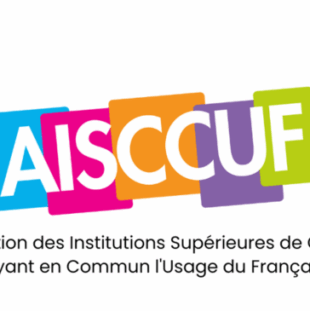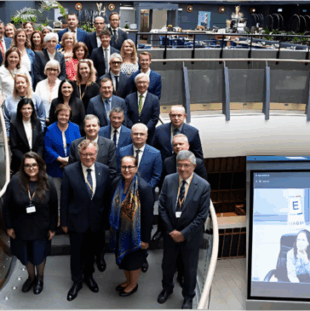INTOSAI – UN High Level Political Forum Side Event Highlights SAI Contributions to the 2030 Agenda
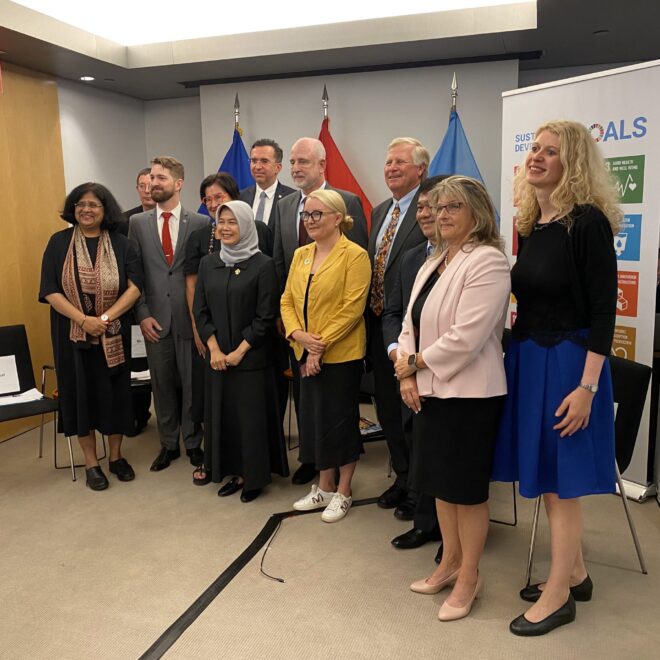
Author: Jessica Du, INTOSAI Journal Editorial Staff
On July 15, 2022, the INTOSAI General Secretariat, the INTOSAI Development Initiative (IDI), and the Working Group on Environmental Auditing (WGEA) jointly organized a discussion panel in New York City to spotlight Supreme Audit Institution (SAI) contributions to the United Nations’ (UN) 2030 Agenda and efforts to address UN Sustainable Development Goals (SDGs). This panel discussion coincided with the UN High Level Political Forum (HLPF), the main UN platform on sustainable development to engages world leaders, non-governmental organizations, civil society and relevant stakeholders, and keep sustainable development high on national, regional and global agendas.
The event, titled, ”Accelerating implementation of the 2030 Agenda – The contribution of Supreme Audit Institutions”, highlights SAIs’ important role in conducting follow-up reviews and audits to track progress of SDG implementation, which has been uneven across Goals and between countries. The INTOSAI panel presented examples of audit work that contributes to the in-depth review of three key SDGs:
- SDG 4: Ensure inclusive and equitable quality education and promote lifelong learning opportunities for all
- SDG 14: Conserve and sustainably use the oceans, seas and marine resources for sustainable development
- SDG 15: Protect, restore and promote sustainable use of terrestrial ecosystems, sustainably manage forests, combat desertification, and halt and reverse land degradation and halt biodiversity loss
To start the event with opening remarks, Ambassador Alexander Marschik, Permanent Mission of Austria to the UN, discussed the importance of SAIs to track UN SDG implementation progress and how intra-institutional cooperation is necessary to achieve the goals. Dr. Isma Yatun, Chairperson of the Audit Board of the Republic of Indonesia, noted that high quality audits can contribute to SDG implementation, and can further accelerate the 2030 Agenda. The Federal Court of Accounts – Brazil (Tribunal de Contas da União — TCU) Minister, Benjamin Zymler, stated that there is more work to be done in the international community, in governments and public administrations worldwide, to nurture public governance for sustainable and equitable public policies.
Ambassador Alexander Marschik Provides Opening Remarks
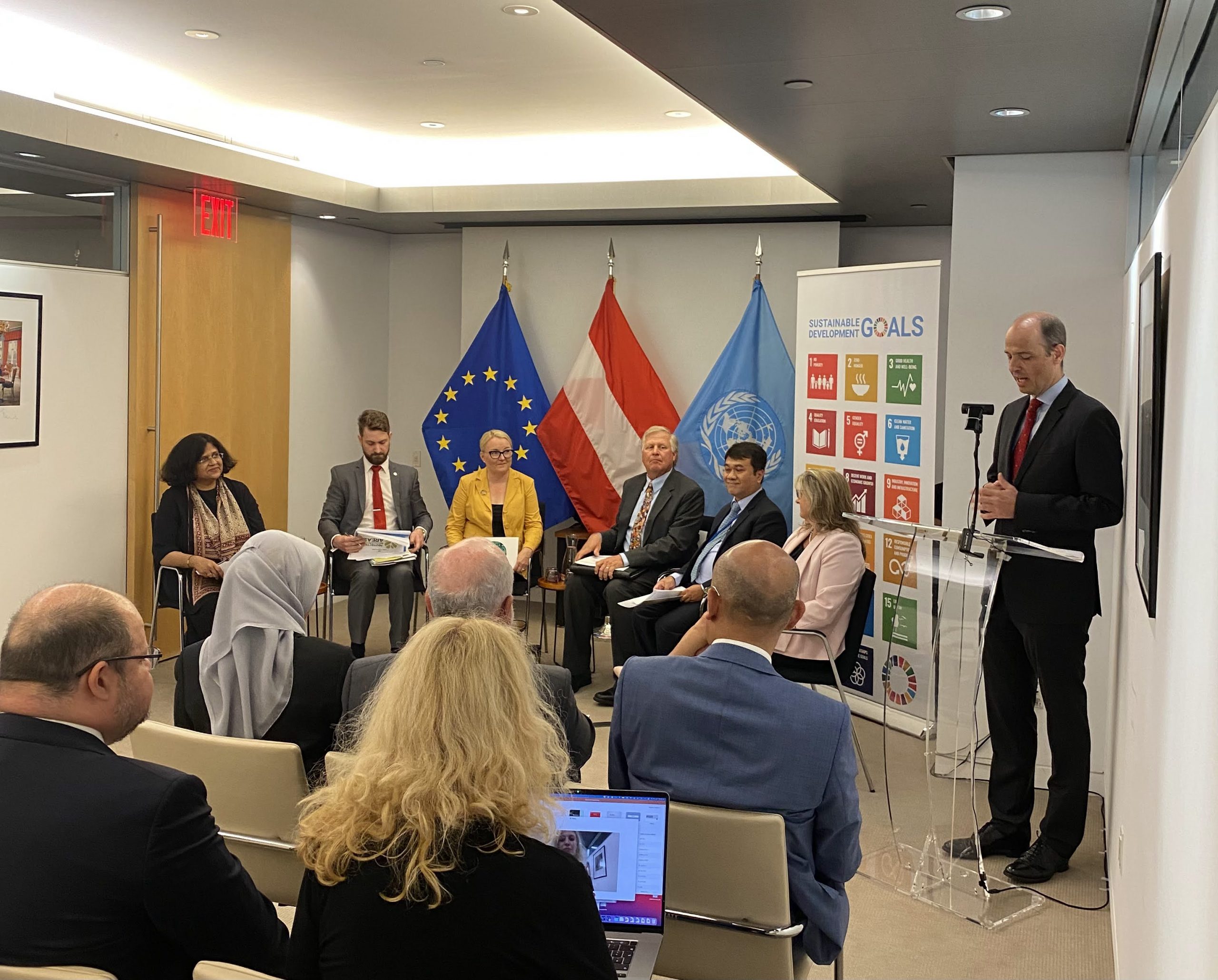
Source: INTOSAI Journal
To highlight the contribution of SAIs to the follow up and review of the SDGs, Ms. Silke Steiner, Director of the INTOSAI General Secretariat, noted that SAIs’ core objectives directly contribute to SDG 16, specifically target 16.6, developing effective, accountable and transparent institutions at all levels. She also discussed how the COVID-19 pandemic deepened SDG implementation asymmetries, set back progress, and slowed down the implementation of the 2030 Agenda. In light of these challenges, Ms. Steiner noted that SAIs are more important than ever to track and review the progress of achieving the SDGs. Ms. Archana Shirsat, Deputy Director General of IDI, discussed the ways in which SAIs contribute to shaping a resilient, equal and sustainable future, and how IDI’s Equal Future Audit Initiative will support SAIs in audits connected to a number of SDGs such as gender equality.
INTOSAI General Secretariat Director Silke Steiner Highlights SAI Contributions to the SDGs
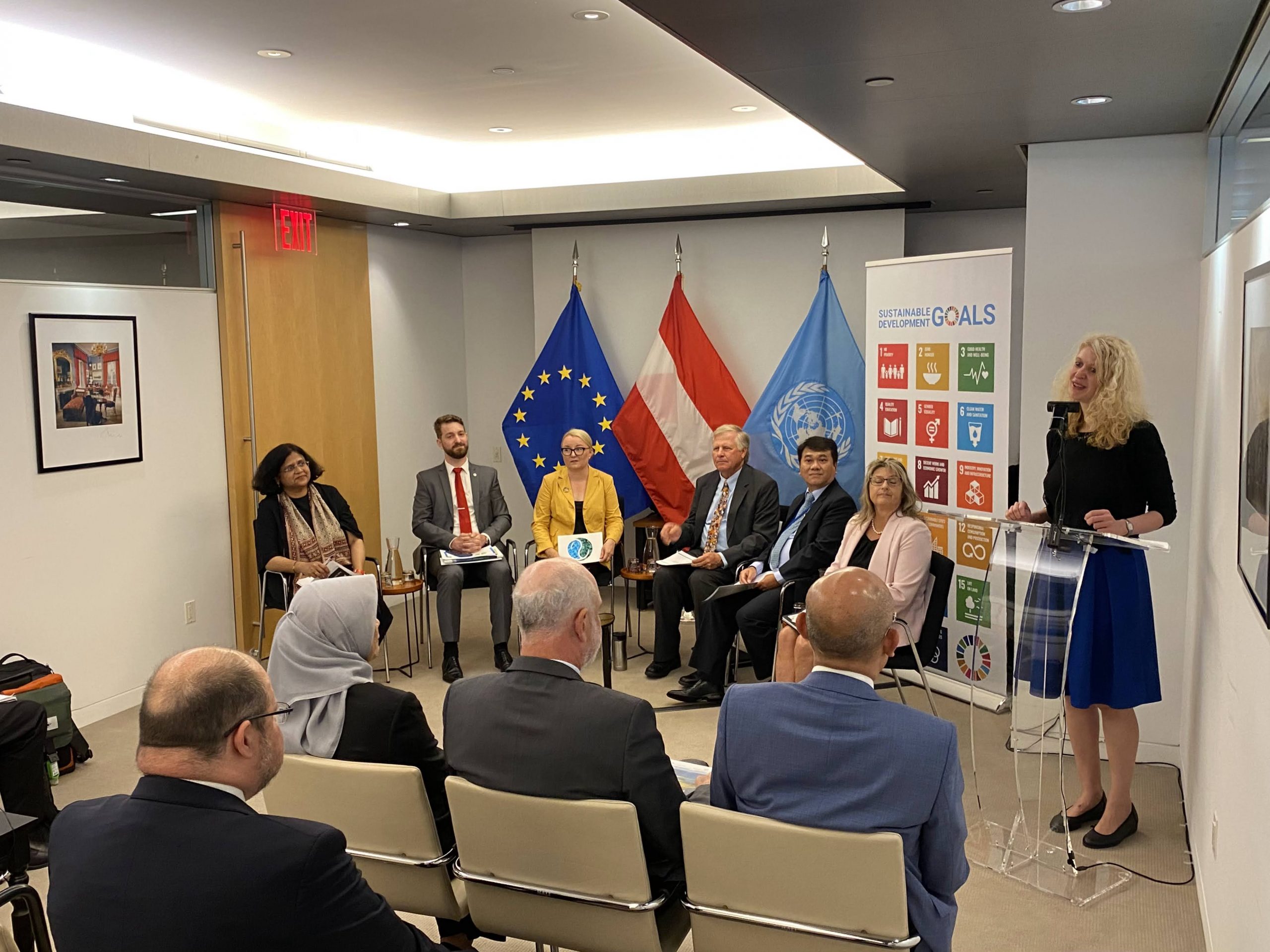
Source: INTOSAI Journal
Through presentations and a panel discussion moderated by Principal Kimberly Leach of SAI Canada, speakers provided overviews of INTOSAI contributions to SDGs:
- Vivi Niemenmaa, the Secretary General of the INTOSAI WGEA, presented INTOSAI contributions to SDG target 17.14, enhancing policy coherence for sustainable development, and stakeholder engagement. Through the lens of a range of environmental audit topics, such as water pollution, SAIs recommended governments have planning and long-term considerations, conduct cost assessments, improve coordination and collaboration, and better utilize public funds. She discussed how the WGEA continues to work with environmentally focused SDGs, but also stays alert to possible emerging topics outside of the SDG framework.
- Mark Gaffigan, Managing Director at the U.S. GAO, provided an overview of how the U.S. GAO’s work is aligned with the UN SDGs, and provided additional detail on SDG 14, and auditing marine environment. He outlined the methodology behind GAO performance audit elements of findings and recommendations in the context of oil and gas pipeline oversight and decommissioning; efforts to share ocean acidification information; and the U.S. partnership with other nations to build capacity to prevent illegal, unreported, and unregulated fishing.
- Adriano Martin Juras, Audit Coordinator from TCU, discussed SDG 15 as applied to the coordinated audit on protected areas in Latin America. In 2019, OLACEFS and TCU conducted a new international coordinated audit on protected areas, with the participation of 17 countries to assess over 2,400 protected terrestrial and marine areas. The audit results show an ongoing improvement in efficacy of the systems of protected areas of the participating countries.
Mr. Adriano Martin Juras Presents the Coordinated Audit on Protected Areas in Latin America
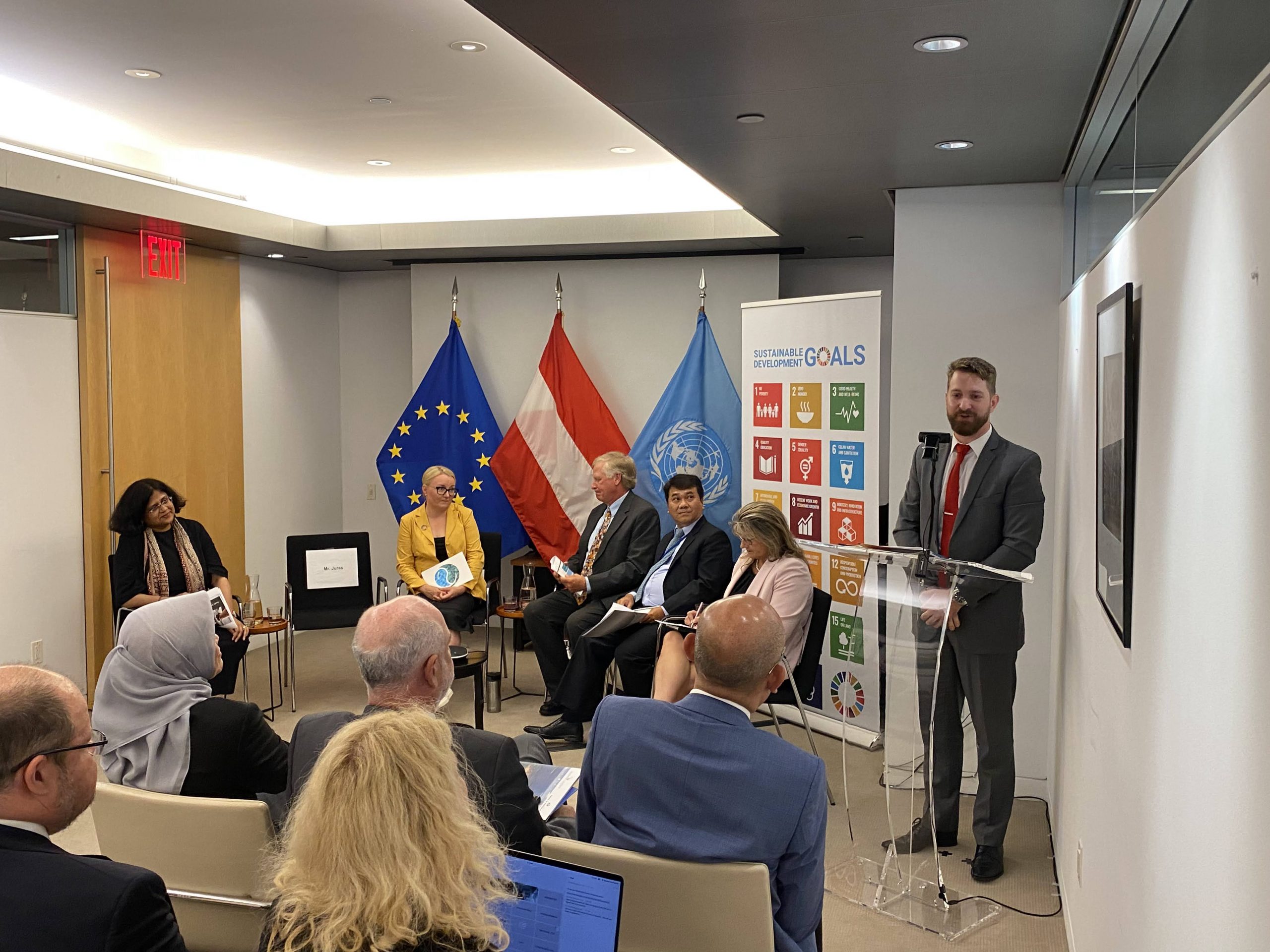
Source: INTOSAI Journal
Additionally, Mr. Bahtiar Arif, Secretary-General of the Audit Board of the Republic of Indonesia provided an overview of Indonesia’s third National Voluntary Review Process and analysis conducted in 2021, which included audit in its process.
MP Petra Bayr, Interparliamentary Union, Mr. David Le Blanc, Chief of UNDESA, and Mr. Ronald Roedl, Director General of the INTOSAI General Secretariat, provided commentaries, reflections on SAI contribution to SDGs, and closing words to cap off the panel discussion.
The event was jointly organized by the Permanent Mission of Austria, the Permanent Mission of Indonesia, the INTOSAI General Secretariat, INTOSAI Development Initiative and the INTOSAI Working Group on Environmental Auditing, and was hosted by the Permanent Mission of Austria to the United Nations.



